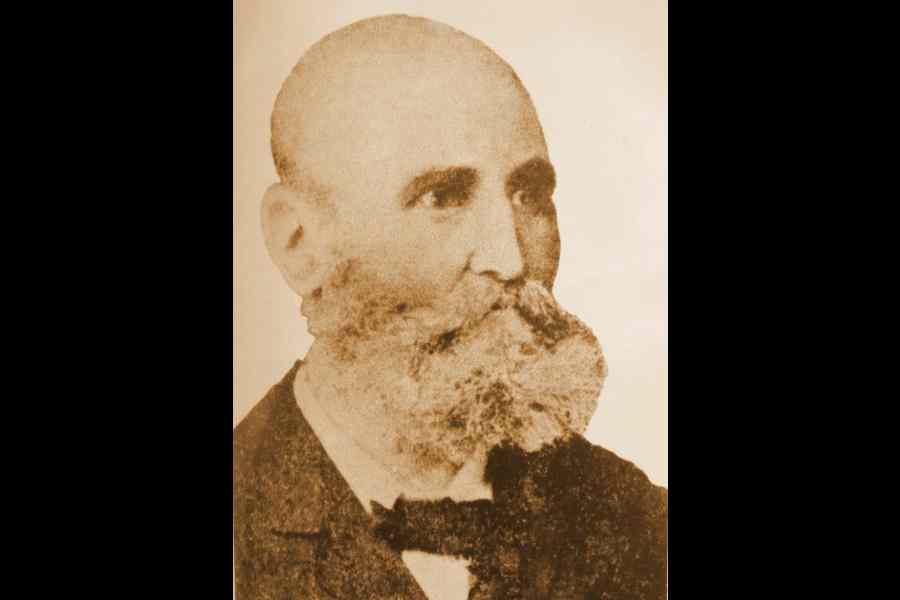A folk song that shepherds of Harsil in Uttarkashi have sung for over a century has recently been traced back to a British sportsman and army deserter who had settled in the mountain climes in 1840 and inspired storytellers like Ruskin Bond and Rudyard Kipling.
The song in Garhwali, Taadi Buni Taand, describes the journey of the two sons of Frederick Wilson in search of two local shepherd women known for their beauty, how love blooms and how they get married.
Local lore suggests that Wilson became prosperous by selling the skin of wild animals to affluent British tourists and timber to the railways. Twenty years after arriving in Harsil, he secured timber harvesting rights from Sudarshan Shah, the king of Tehri at the time. Locals eventually dubbed Wilson the “King of Harsil” and he even introduced his own currency.
Uttarakhand folk singer Narendra Singh Negi, along with friends and researchers, recently recorded the folk song and released it on social media. “The song is about 100 years old and narrates the love story of Wilson’s sons, Nathu and Indri, and their relationship with two local women, Ruda and Godari (Godavari), from the village of Dharali in Uttarkashi,” Negi said.
The song, written in the third person, describes the journey of Nathu and Indri on horseback in search of Ruda and Godari, how the two men entered the kitchen wearing shoes and the eventual marriage of the two sets of couples.
“Shepherds from Dharali and Harsil sing this folk song in the grazing fields. My two acquaintances, Madhvendra Rawat and Balam Dass of Harsil, documented the song while spending time with the shepherds,” Negi added.
Wilson had married two local women, Raimata and Sangrami Chand. Sangrami Chand, who was also known as Gulabi, bore his three sons — Nathaniel, Charles and Henry. Nathaniel and Henry were locally referred to as Nathu and Indri.
Wilson’s life even inspired authors such as Ruskin Bond and Rudyard Kipling to write stories about him. Bond wrote Wilson’s Bridge, while Kipling’s The Man Who Would Be King is believed to have been influenced by him.
In his later years, Wilson opened a hotel in Mussoorie, which is now part of the Lal Bahadur Shastri National Academy of Administration. Although he was swept away by a flash flood in 1880, he returned days later and lived until 1883.










